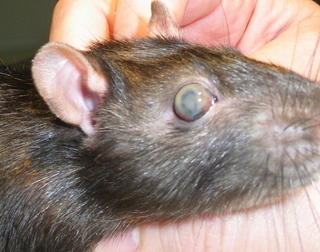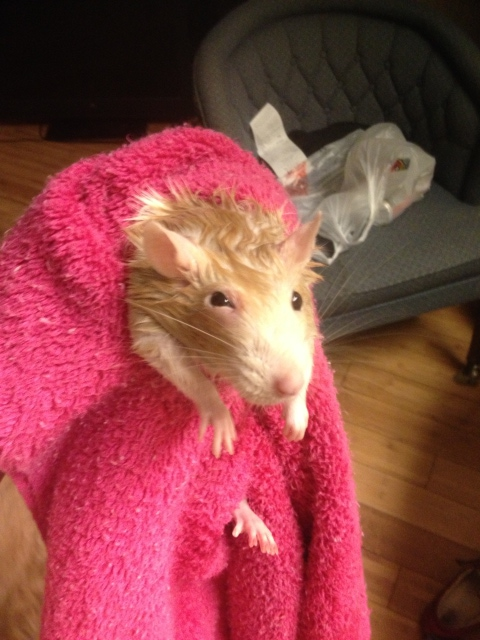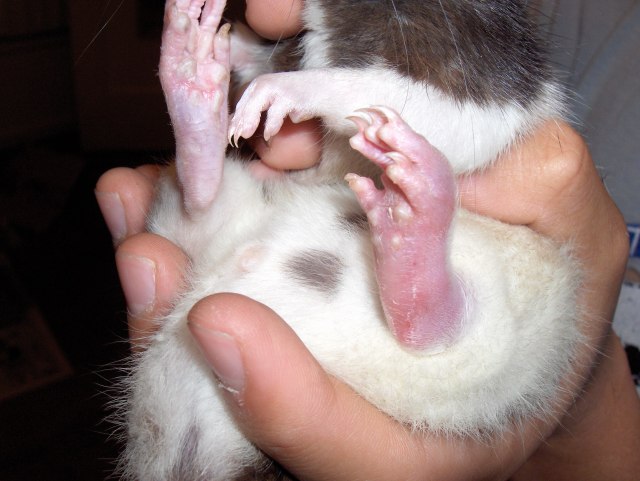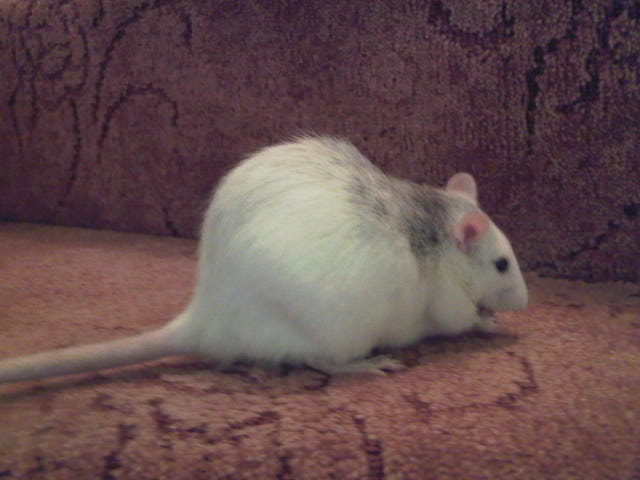QuestionSandra, I'm a Vet that works on rats here in Marietta, Ga. How can I contact
you directly? Email me please. I don't think there should be much concern
about Baytril in younger rats although Doxy is the drug of choice not Baytril.
What happens in dogs (and not all dogs, primarily large breeds) doesn't
happen in cats and I see no reason to worry about Baytril if it's indicated,
especially for UTIs where Baytril concentrates better in the urinary tract and is
broader spectrum than Trimeth Sulfa. Enjoy your site!
Dr Contarino
Town and Country Vet Clinic
Marietta, Ga
AnswerDr. Contarino
Thank you very much for the inquiry. You can reach me directly at Sandyscrittercity@yahoo.com
From what I have been taught and what we practice, we have been aware that the quinolone class of drugs including baytril, have shown that the use of baytril in young rats produce erosions of cartilage in weight bearing joints along with other signs of arthropathy in immature animals of various species, not limited to just dogs and cats. Rats were included in this study. However, the benefits may outweigh the risks, esp when dealing with infections linked to the mycoplasmosis organism. We have found that baytril along with doxycyline together work best treating respiratory infections caused by mycoplasmosis, which rats are very prone to developing as they age. Baytril works on an organism that has no cell wall and is able to fight this bacteria better than other antibiotics that work directly on the cell wall. This is why myco is so hard to fight, since the choices in drugs are indeed limited. However, when dealing with UTIs, I agree baytril works better in most cases when dealing with rats mainly because mycoplasma is often the culprit just the same as it is with respiratory infections in rats and also otitis media in rats too. Doxycycline tends to compliment the actions of baytril and when used simultaneously, these two drugs have worked wonders when dealing with myco related upper respiratory tract infections. However, we usually try to use zithromax (Azithromycin) for three days first in younger rats before using baytril due to the precautionary statement discussed above. When baytril/doxy and azithromyacin fail, this is when we assume there is more going on than just the myco bacteria and often introduce another drug such as Trimeth sulfa, amoxil or cefa drops, as the culprit may even be strep related in which I find that baytril is not as active in destroying streps as other drugs.
Unfortunately, I have had first hand experience with many infections in my own beloved rats (losing one just yesterday to congestive heart failure) and sometimes, nothing will help our rats when respiratory infections occur as their delicate lungs are often damaged by infection and they suffer from scarring, blistering of the lungs and even collapsed lungs as the result of chronic respiratory infection. I do feel that if we are going to use baytril during these infections, the duration must be at least a full 30 days and if they have a second outbreak, using baytril once a day at a higher end dose is the best way to prevent relapse and often can hold mycoplasmosis at bay for a long time. This will prolong the rats life sometimes up to 12 months or longer. Yes we may risk tolerance, but most of the time, once again, the benefits outweigh the risks.
Feel free to reach me at my private email any time and thank you again for caring enough about our little rodent friends to write.

 Inner Ears, Bulging Eyes, Blindness?
QuestionQUESTION: Well hello; yet again. I have a femal
Inner Ears, Bulging Eyes, Blindness?
QuestionQUESTION: Well hello; yet again. I have a femal
 Should i put my rat to sleep?
Question
fluffy before after
Hello I have
Should i put my rat to sleep?
Question
fluffy before after
Hello I have
 Pet Rat with edema and possibly diabetes
QuestionQUESTION: Hi,
My pet rats right leg has swollen
Pet Rat with edema and possibly diabetes
QuestionQUESTION: Hi,
My pet rats right leg has swollen
 Choking
Question
Sophie
Hi Irene,
I have an 18 mth old
Choking
Question
Sophie
Hi Irene,
I have an 18 mth old
 Rat Cage
QuestionQUESTION: Hi Sandra,
I used to own 3 male brot
Rat Cage
QuestionQUESTION: Hi Sandra,
I used to own 3 male brot